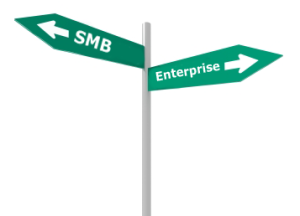
Small to medium sized (SMB) companies have many choices of CRM software options, yet choosing a solution that actually meets their needs is a tremendous challenge. SMB have needs that are as great as any large company but often do not possess the financial resources. Enterprise CRM solutions are far too expensive and complex for SMB companies. If you are looking for a SMB CRM software, here are three tips to short-list vendors.
Demand stability and experience in the SMB Market
Make certain the CRM you are considering is from a vendor experienced in the SMB market. Select a vendor who understands SMB challenges and has done measurably successful implementations for companies in this market. That experience can make a difference between success and failure of your CRM initiative. Be sure to ask for references and talk to their customers.
Watch pricing and scalability
Many large enterprise vendors are entering the SMB market with a watered down version of their product in an attempt to match pricing points. Users have discovered too late that to get all the functionality they need, the cost per user skyrockets well beyond the initial budget considerations.
On the other hand, vendors that have focused on the smaller businesses are trying to serve the SMB with a less scalable version. They primarily offers ‘contact management systems’ which are too small for company-wide implementations and can’t offer robust system insights into a 360-view of the customer. They cannot match the needs of selling into larger accounts either.
Look for a CRM solution that is built specifically for the SMB market, and yet offers the rich capabilities that are typically found in enterprise CRM solutions.
Look for ease of integration
Some CRM systems are good for one business unit but have little capability for another. As a result, some companies have two systems – one for business units like marketing and sales and another for customer support – which aren’t well integrated.
Look for systems that can provide a solution that is well integrated and equally strong across a company wide initiative. Avoid the need to purchase expensive add‐on modules or applications as use of CRM grows. Plus built‐in integration with back office applications such as Intuit QuickBooks may be useful. Compatibility with Outlook or Google Apps is another feature to consider.
